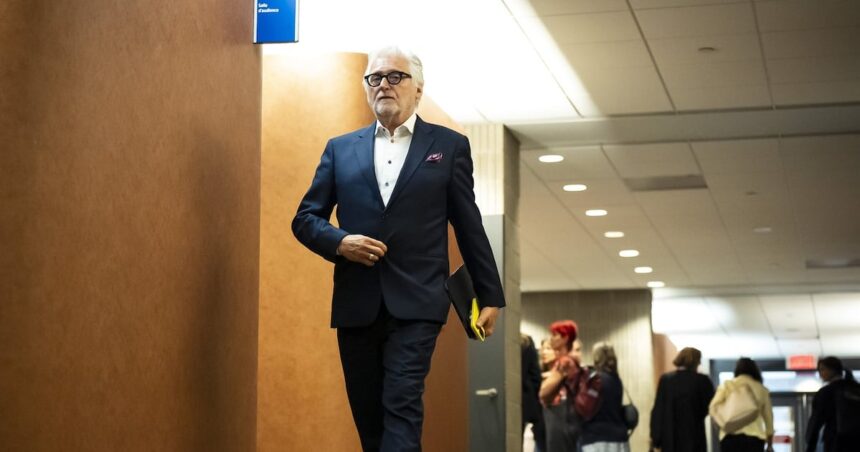The founder of the internationally renowned Just For Laughs comedy festival faced intense scrutiny Monday as his civil trial continued in Montreal. Gilbert Rozon, whose comedy empire once spanned continents, was confronted with comments he made in 2011 about a sexual assault conviction from 1998, statements that appeared to contradict his current testimony.
“I’ve always maintained my innocence,” Rozon insisted from the witness stand, his voice steady despite visible tension. The 70-year-old comedy mogul is currently defending himself against allegations from five women who claim he sexually assaulted them between 1980 and 2016.
The civil proceedings have drawn significant attention across Canada, particularly as the plaintiffs seek a combined $10 million in damages from the former entertainment titan. Rozon has consistently denied all allegations brought against him.
Monday’s testimony centered on a particularly challenging line of questioning from the plaintiffs’ legal team, who presented Rozon with statements he made during a 2011 television interview. In that appearance, Rozon had suggested he accepted responsibility for the 1998 incident, saying: “I pleaded guilty to something I did.”
When confronted with this apparent contradiction, Rozon appeared momentarily flustered before explaining that his 2011 comments had been misinterpreted. “I was referring to the legal process, not an admission of the act itself,” he clarified, adding that language barriers may have contributed to the confusion.
Legal experts following the case note that this line of questioning could significantly impact how the judge evaluates Rozon’s credibility. “When a defendant’s past statements conflict with current testimony, it creates an obvious challenge for their defense,” explained Marie Lapointe, a Montreal-based litigation specialist not connected to the trial.
The civil proceedings follow Rozon’s dramatic fall from grace in 2017 when multiple women came forward with allegations against him during the height of the #MeToo movement. The accusations led to his resignation from Just For Laughs, the comedy institution he founded in 1983 that grew into one of the world’s largest comedy festivals.
The courtroom was filled with supporters of the plaintiffs, many holding signs with messages of solidarity. Outside the courthouse, dozens gathered in a peaceful demonstration, highlighting the broader societal implications of the case.
“This trial represents more than just these specific allegations,” said Patricia Tulasne, one of the plaintiffs speaking to reporters during a recess. “It’s about accountability and the courage to speak truth to power, even decades later.”
As the trial continues through what is expected to be several more weeks of testimony, legal observers suggest it could set important precedents for similar civil cases across the country. The proceedings have reignited discussions about Canada’s statute of limitations for sexual assault cases and the challenges victims face when coming forward years after alleged incidents.
As we continue to witness this landmark case unfold, one question remains at the forefront: How will our justice system balance the rights of the accused with the voices of those who claim to have suffered in silence for decades?










